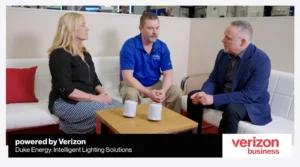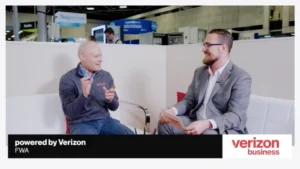Renewable Energy Sources are Too Unpredictable to be the Sole Answer for Decarbonizing Energy Generation
The urgent need to address climate change is a global priority, and the race towards a carbon-neutral future is a complex and challenging undertaking. As the planet has experienced one of the hottest months on record in July 2023, the calls to combat the climate crisis are resonating louder than ever before. Decarbonizing energy generation could be a possible solution combined with different sources of electricity. However, the unpredictable nature of these sources might also present a challenge to energy grids.
Among the practical options for filling this need, such as coal and natural gas, only nuclear power stands out as a carbon-neutral solution. But, the subject of nuclear power is not without its problems, as seen in Japan’s devastating Fukushima disaster, and raises concerns about safety and environmental contamination.
Dr. Dan Ferreira, Ph.D. is the Associate Professor, at Kennesaw State University. Ferreira has worked for the institution for over eight years and is also the Assistant Chair of the University’s Department of Ecology, Evolution, and Organismal Biology. A trained chemist, he’s worked on removing radioactive cesium from the soil in the Fukushima Prefecture in Japan, and he studies how radiocesium interacts with certain elements native to the flora and fauna near the disabled plant. Ferreira has a full understanding of nuclear energy’s potential and limitations, and nuclear power’s role in the renewable energy future. He detailed the need for decarbonizing energy and discussed a significant roadblock that might prevent it from flourishing.
Ferreira’s Thoughts on Decarbonizing Energy
“My name is Dr. Dan Ferreira, and I’m an Associate Professor of Environmental Science at Kennesaw State University in Georgia. I’m a soil chemist who studies the contamination and remediation of soil and groundwater. I’ve done research on soil salinization, which is when agricultural soils get too salty to grow crops properly, and the behavior of microplastics in the natural environment. My main research project, however, is trying to find a way to remove radioactive cesium from the soil in Fukushima Prefecture in Japan. As you may know, the Fukushima Daiichi nuclear power plant had a meltdown in 2011, and three hydrogen gas explosions in the reactor buildings ejected particulates laced with radioactive materials high up into the air.
“As these radioactive particulates eventually fell back down to Earth, they contaminated soil in a large area northwest of the power plant with radioactive isotopes. The most significant of these is radiocesium, which persists in the environment for a very long time compared to other radioisotopes. I’ve spent the last seven years studying the interaction of radiocesium with specific minerals common to that part of Japan, and looking for a way to safely remove the radiocesium and segregate it for safe disposal. Having just undergone one of the hottest months on record in July 2023, I think it is safe to say that it is becoming clearer and clearer every day that we need to start taking more serious action to combat climate change.
“The two main economic sectors that put climate-warming greenhouse gasses into the atmosphere are power generation and transportation. As electric cars become more and more ubiquitous in our society, the line between those two sectors is starting to blur, with our electricity generation becoming more inextricably linked to our transportation sector. For this reason, it is critically important that we start decarbonizing our energy generation as much as possible. Many people will argue that the sensible way to do this is to invest more heavily in renewable energy sources such as solar and wind. However, the amount of power that these sources can generate vary from day to day, since there is really no way to predict how much the sun will shine or how much the wind will blow on any given day.
“This is a pretty significant obstacle, since our current electrical grid depends on operators being able to precisely control how much energy is being generated. At any given moment, the amount of energy flowing into the grid has to be equal to the amount of energy flowing out of the grid. To make this possible in a future where we are getting more and more electricity from renewable sources, we need some portion of the electricity we generate to be controllable, so that if it’s cloudy tomorrow and the solar power plant is making less energy than it did today, we can crank up the amount of electricity generated somewhere else to compensate. There are currently only three practical types of power plants that can fill this need. Coal, natural gas, and nuclear. Of those three, only nuclear power is carbon neutral. So, if we want to reach a carbon neutral renewable energy future, nuclear power has to be part of the discussion as to how we will get there.”








